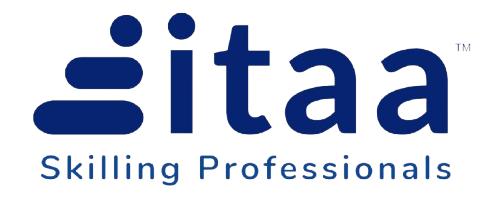Introduction
Embarking on a career in accounting represents a significant transition for recent graduates eager to make a mark in the financial world. This field offers numerous opportunities for growth, but it also comes with challenges that require a blend of theoretical knowledge, practical experience, and ongoing professional development. At ITAA Education, we understand these hurdles and are dedicated to helping you navigate them, ensuring that you have the skills and knowledge necessary to succeed in the accounting profession. This blog aims to explore the journey from graduation to professional success, with a focus on how you can leverage online courses, practical experience, and certifications to build a strong career in accounting.
Understanding the Accounting Landscape
Accounting is often referred to as the language of business because it plays a crucial role in the day-to-day operations of any organization. Professionals in this field are responsible for maintaining financial records, preparing reports, conducting audits, filing taxes, and providing strategic advice to guide businesses in their financial decision-making. As an aspiring accountant, it is essential to grasp the wide scope and diversity of roles within this industry.
The demand for skilled accountants spans various sectors, including public accounting firms, private corporations, non-profits, government agencies, and even freelance positions. Additionally, the accounting profession is evolving rapidly, influenced by technological advancements, regulatory changes, and global economic shifts. This ever-changing landscape presents both challenges and opportunities, making it essential for aspiring professionals to continuously adapt and upskill.
In the traditional sense, accounting is divided into several key areas:
- Financial Accounting: This is the process of recording, summarizing, and reporting the financial transactions of a business. Financial accounting produces financial statements, such as income statements and balance sheets, that provide stakeholders with an overview of the company’s financial health.
- Managerial Accounting: Unlike financial accounting, which focuses on external reporting, managerial accounting focuses on internal business needs. It involves analyzing financial data to assist management in making informed decisions about budgeting, forecasting, and operational improvements.
- Taxation: Tax accountants help businesses and individuals comply with tax laws and regulations, ensuring that they pay the correct amount of taxes while taking
advantage of any applicable deductions or credits.
- Auditing: Auditors examine financial records to verify their accuracy and ensure that businesses comply with legal and regulatory requirements. Auditing can be internal (performed by the organization itself) or external (conducted by independent third parties
- Accounting Information Systems: As technology plays an increasingly important role in accounting, accountants need to be proficient in accounting software and systems that automate financial processes and improve accuracy.
These are just a few of the specializations within the field of accounting. As a graduate, understanding these different areas and their respective skill sets will help you decide which career path to pursue and how to position yourself in the job market.
The Importance of Accounting Online Courses
In today’s fast-paced digital world, online courses have become a vital resource for aspiring accountants. These courses offer the flexibility to learn at your own pace, which is particularly beneficial for recent graduates who may be balancing job searches, internships, or other commitments. Online education provides a practical and cost-effective way to gain the knowledge and skills needed to succeed in the accounting profession.
Online courses cater to a wide range of topics, from foundational accounting principles to advanced financial analysis and accounting technology. The best online accounting programs not only cover theoretical concepts but also provide practical tools, case studies, simulations, and quizzes to enhance the learning experience. These interactive elements ensure that you are actively engaging with the material, reinforcing key concepts and developing practical problem-solving skills.
Moreover, completing an online accounting course often results in certification, which can significantly enhance your professional profile. These certifications demonstrate your commitment to professional development and make you more marketable to potential employers. Employers recognize the value of certifications as they indicate that you have a solid understanding of key accounting principles and that you are proactive about staying updated with industry trends.
Building a Strong Foundation: Core Accounting Skills
To succeed in accounting, it is essential to build a strong foundation in core accounting principles. The following are some of the fundamental skills that aspiring accountants should focus on developing during their education:
- Financial Accounting: This area covers the basics of preparing financial statements, interpreting balance sheets, and understanding profit-and-loss accounts. A solid understanding of financial accounting is essential for every accountant, as these skills are needed in nearly every accounting role.
- Managerial Accounting: Managerial accountants focus on internal business processes and help management make decisions about budgeting, cost management, and forecasting. Learning how to analyze and interpret financial data in a managerial context is key to thriving in this role.
- Taxation: Understanding tax laws and regulations is essential for accountants who specialize in taxation. This knowledge allows you to prepare tax returns accurately, advise clients on tax planning, and ensure compliance with federal, state, and local tax laws.
- Auditing: As an auditor, you will be responsible for verifying the accuracy of financial records and ensuring that businesses are adhering to accounting standards and regulations. Learning the principles of auditing is essential for a career in this field.
- Accounting Information Systems (AIS): In the digital age, accounting software and systems are increasingly important for accountants. Familiarity with popular accounting software like QuickBooks, SAP, and Oracle can make you more competitive in the job market.
Online accounting courses typically cover these subjects in depth, providing both theoretical knowledge and practical skills that can be immediately applied in the workplace. They also offer opportunities to dive deeper into specialized areas, such as forensic accounting or financial modeling, depending on your career interests.
Gaining Practical Experience
While theoretical knowledge is important, practical experience is equally essential for a successful career in accounting. Theoretical concepts often come to life when applied to real-world scenarios. That’s why gaining hands-on experience through internships, part-time jobs, or volunteer positions is crucial for aspiring accountants.
Internships are one of the best ways to gain practical experience, as they provide an opportunity to work with experienced professionals, learn about the day-to-day operations of an accounting department, and develop practical skills. Many online accounting courses incorporate internships or capstone projects into their curriculum, allowing students to gain experience while earning their certification.
If internships are not immediately available, consider seeking part-time positions or volunteering with local organizations that require accounting assistance. These opportunities will allow you to apply your knowledge in a real-world setting and help build your resume.
Additionally, many online courses offer simulations or case studies that mimic real-life accounting scenarios. These exercises are designed to challenge students to solve practical problems and make decisions based on the information available, helping to prepare them for the complexities of the accounting profession.
Leveraging Technology in Accounting
Technology has transformed the accounting profession, making it essential for accounting professionals to be familiar with the latest software and tools. From cloud-based accounting platforms to artificial intelligence-driven analytics, technology is an integral part of modern accounting.
Online accounting courses often include training on accounting software such as QuickBooks, SAP, and Xero. These programs are used by businesses to manage their financial processes, automate transactions, and ensure accurate reporting. Proficiency with these tools is often a requirement for accounting roles, making it crucial for aspiring professionals to gain experience with them.
Moreover, the rise of data analytics in accounting has created a demand for professionals who can analyze large sets of financial data to provide insights and recommendations. Learning how to use data analytics tools and understand how data-driven decision-making is impacting the accounting profession will set you apart from other candidates in the job market.
Preparing for Certification Exams
One of the most important milestones in an accountant’s career is obtaining a professional certification. Certifications such as the Certified Public Accountant (CPA) or Chartered Accountant (CA) are highly regarded in the industry and demonstrate that you have a deep understanding of accounting principles and practices.
To become certified, you must pass a series of exams that test your knowledge in various areas of accounting. Preparing for these exams requires dedication, and many online courses are designed specifically to help candidates prepare for certification. These courses provide structured study plans, practice exams, and expert guidance to help you succeed.
Achieving certification can significantly enhance your job prospects and earning potential. Many employers require certification for accounting roles, and having a recognized qualification can give you an edge in a competitive job market.
Networking and Professional Development
Networking is a critical component of career development in any profession, and accounting is no exception. Building a professional network can help you discover job opportunities, gain industry insights, and connect with mentors who can guide you in your career.
There are many ways to network in the accounting field. Joining professional organizations such as the American Institute of CPAs (AICPA) or the Institute of Chartered Accountants of India (ICAI) can help you connect with other professionals in the industry. These organizations offer networking events, conferences, and seminars where you can meet like-minded individuals and learn from industry leaders.
Additionally, staying up-to-date with industry trends and best practices is essential for ongoing professional development. Participating in webinars, reading accounting journals, and attending workshops will help you stay informed about new regulations, technologies, and methodologies in the accounting field.
Conclusion: Your Pathway to Success
The journey from a recent graduate to a successful accounting professional is filled with opportunities for learning, growth, and career advancement. By leveraging online accounting courses, gaining practical experience, embracing technology, and pursuing professional certifications, you can position yourself for a fulfilling career in this dynamic field.
At ITAA Education, we are committed to helping you succeed. Our courses are designed to provide you with the knowledge, skills, and certifications needed to excel in the accounting profession. We offer expert guidance, flexible learning options, and a supportive community to ensure that you can achieve your career goals.
Take the first step on your journey today, and let us help you transform your aspirations into tangible achievements. With the right education, experience, and network, you can succeed in accounting and build a rewarding career that lasts a lifetime.Enroll now and start shaping your future with us!









